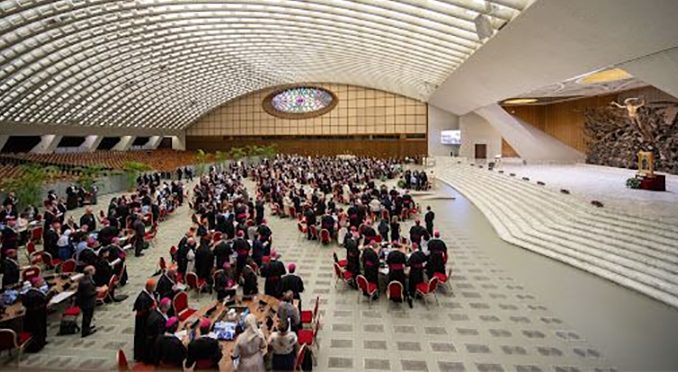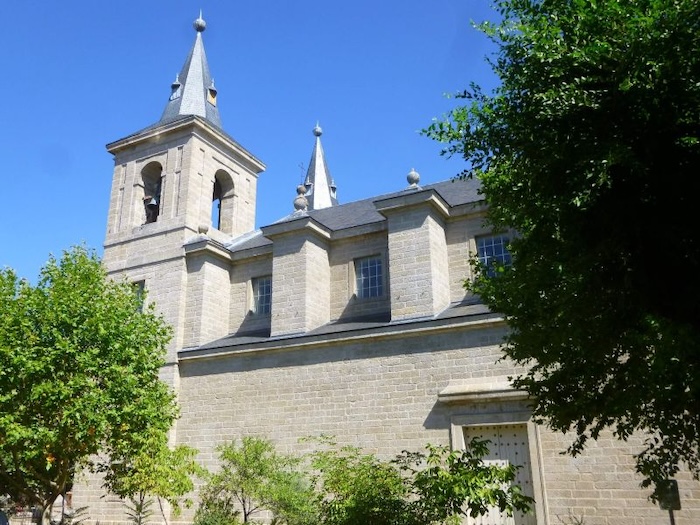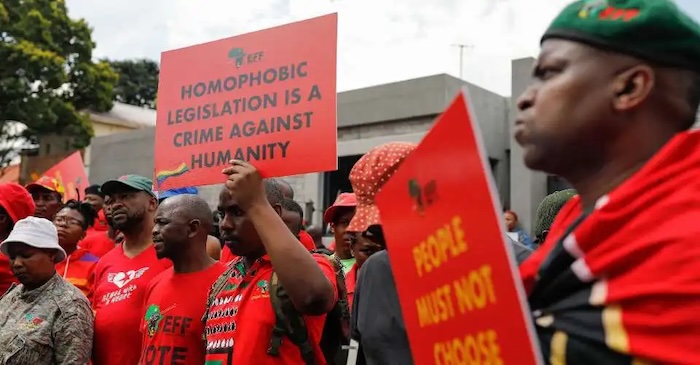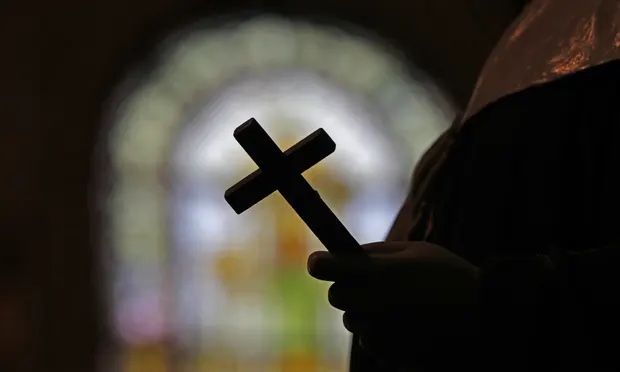— The four presenters at a February 29th presentation at Santa Clara University include advocates of radical feminism, women deacons and priests, abortion, and “LGBTQ” concerns.

By
Doubling down on the call from Pope Francis at the opening of the Synod of Bishops last Fall to resist “doctrinal rigidity,” four feminist theologians were invited to the Markey Center at Santa Clara University on February 29th to participate in their own conversation, titled “Women Speak on the Synod: a Conversation on Ministry, History, Culture and Practice”.
Committed to discussing—yet again—the possibility of an expanded role for women in ministry in the Church, the theologians gave presentations to a sparsely attended gathering of fewer than 20 individuals, emphasizing Pope Francis’s invitation to “embrace a vision of the Church that is open and welcoming to all.” All four of the presenters at the Santa Clara Synod were indeed “open and welcoming” to many ideas—including some that are counter to the teachings of the Church.
The first presenter, Elyse Rabey, PhD, an Assistant Professor of Theology at Santa Clara University, set the stage by providing what she described as the history of synodality in the Church, stating that “Pope Francis is reviving an ancient form of governance and reimagining it at the same time…making it quite new.” Lauding the fact that Pope Francis invited lay women and laymen to have full voice and vote in these meetings, Rabey reminded the audience that Pope Francis has stressed that synodality is about more than synods. Rather, synodality is about a “Church that is always reforming.”
Rabey, whose curriculum vita states that she has published “on the possibility of women deacons in the Catholic Church”, has also published on “also published on intersex embodiment and theology of creation in Theology and Sexuality and on Marian symbols and kyriarchal ideology in Elisabeth Schüssler Fiorenza’s book Congress of Wo/Men: Religion, Gender, and Kyriarchal Power.” Fiorenza is a noted radical feminist theologian who has argued that St. Paul was misogynistic, supported the ordination of women to the priesthood, and worked to change the Church’s teaching on abortion.
The second presenter, Rachel Bundang, PhD, expressed her disappointment with the Synod: “I expected more from the process…I felt left behind…as a working theologian, educator and minister. I hoped it would feel more personal. But the process was exclusionary, opaque, and disappointing. I feel left behind…it has left me at a distance.” Sharing her sadness that a neighboring parish was “phasing out female altar servers,” Bundang, who describes herself on the Catholic Women Preach website as a “feminist ethicist,” “preaches” regularly at her home parish in the Bay Area.
Part of the explanation for the disappointment expressed in various ways by the four theologians is that their expectations for change through the Synod were so high. Believing that the Synod would move the Church to change her teachings on women’s role in ordained ministry, on reproductive rights, and “GLBTQ” issues, it is not surprising that these women would be disappointed with the outcome of the Synod so far. Each of these women had their own goals for the Synod and all seemed to be disappointed that these goals were not met.
For example, the third speaker, Elsie Miranda, D. Min, describes herself as a Cuban-American Practical theologian whose academic interests lie at the intersection of Catholic Ethics, Pastoral Formation for Ministry, and Liberative Theologies, particularly among U.S. Hispanic/Latinx and LGBTQ Catholic communities. Miranda is affiliated with New Ways Ministry, the Catholic LGBTQ outreach ministry that the late Pope Benedict XVI described as holding positions “regarding the intrinsic evil of homosexual acts and the objective disorder of the homosexual inclination are doctrinally unacceptable because they do not faithfully covey the clear and constant teaching of the Catholic Church.” Founded in 1977, by Sister Jeannine Gramick and Fr. Robert Nugent, who were both the subject of a notification by the Vatican Congregation for the Doctrine of the Faith in 1999, New Ways Ministry appears to have found new acceptance under the current papal regime. On October 17th, Pope Francis received Gramick at his residence in Rome, in a meeting that was described by James Martin, SJ, as a “significant step forward in the church’s outreach to LGBTQ Catholics.”
Beyond support for views contrary to Church teachings on GLBTQ issues, Miranda has spoken out in favor of a woman’s right to choose abortion. Railing against the Dobbs decision in an essay published recently, Miranda made the preposterous claim that “the implications of denying women access to medical procedures that would terminate a pregnancy in the case of rape or incest or in order to save a mother’s life in the case of ectopic pregnancy or miscarriage are inconsistent with a right to life ethic.”
Miranda is not alone on the Santa Clara panel in her views supporting access to abortion. She was joined by self-described “womanist” theologian C. Vanessa White, who told the audience that she “has spent two-thirds of my life engaged in ministry in the Church.” Like Miranda, White has been a public supporter of “reproductive justice” for women. One of several signers of the Faith in Public Life open statement on “reclaiming public debate about abortion and reproductive justice,” White has played an important role in the conversations leading up to the Vatican Synod.
Chosen to participate in the Continental Stage of the Synod by Chicago’s Cardinal Cupich—despite her public support for abortion—White also participated in the theologians’ section of the Synod through the Catholic Theological Society of America. White, who currently serves as an Associate Professor of Spirituality and Ministry at Catholic Theological Union in Chicago and Director of the Certificate in Black Theology and Ministry, has also supported New Ways Ministry’s public statements on GLBTQ rights within the Church by signing an LGBTQ non-discrimination statement which decried Catholic Church’s opposition to the Equality Act—an Act that would force Catholic institutions to adhere to government mandates on non-discrimination against LGBTQ teachers, priests, and other employees in Church-related schools and parishes.
While the feminist panel lamented the lack of progress in the Church in implementing their desired outcomes surrounding women in ministry, “reproductive rights,” and LGBTQ issues, all were looking forward to the upcoming Synod in October, 2024, claiming that their voices will finally be heard and validated.
Whether that is true remains to be seen. On one hand, their views are quite common in numerous Catholic colleges and universities across the country. On the other hand, those views are quite consistent with those expressed in Germany via the “Synodal Way,” which has been publicly rebuked by Pope Francis. But they are certainly representative of the ongoing, progressive lobbying for dramatic change in the Church, which will continue to exert influence on the Synod on Synodality assembly, meeting in Rome in October.
Complete Article ↪HERE↩!




